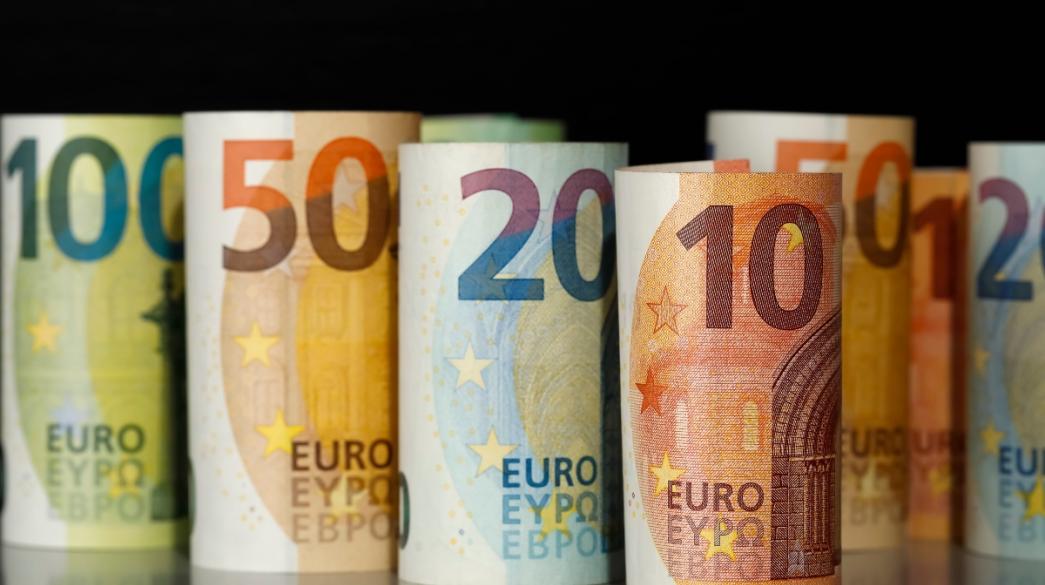There may have been a significant acceleration in the growth rate of private sector deposits in 2020, an increase for the fourth consecutive year, but despite this improvement, the balance of commercial bank deposits remains significantly lower than in 2014, reflecting how difficult it is to heal the wounds of the country’s economic crisis.
According to eleven-month data from the Bank of Greece, the increase in household and business deposits exceeds 15 billion euros, or 10.88%, from the end of 2019, while the cumulative increase in deposits in the 4-year period 2017-2020 exceeds 37 billion euros. Despite this significant increase, the current balance of household and business deposits remain lower than in 2014 while the gap with crisis-era levels remains huge.
At the end of November, total private sector deposits amounted to 158.69 billion euros compared to 160.285 billion euros in December 2014. It is noted that in September 2014 deposits had risen to 164.75 billion euros, but the policy instability triggered by Syriza's bid to overthrow the Samaras government on the occasion of the President’s election rekindled uncertainty and caused a new run on deposits.
2015 was the worst year, in terms of deposit outflows, since the outbreak of the financial crisis in 2010, as within a few months deposits decreased by 37 billion euros or 23%, while the worst was avoided due to the imposition of capital controls. At the end of December 2015, deposits amounted to 123.77 billion. euros compared to 160.28 billion at the end of 2014.
The decline in deposits continued in 2016 and the first months of 2017 with the balance of deposits falling to 118.99 billion euros in April 2017. At this point the losses of deposits in relation to the pre-crisis period (2009) reached 50%, ie deposits dipped to 118.5 billion euros, mostly going to banks and investment products abroad.
Gradual rebound
From May 2017, the gradual recovery of deposits began with the economic conditions gradually stabilizing. 2017 closed with an
increase in deposits on an annual basis of 4.09% while in the two years 2018 - 2019 deposits increased by approximately 16.8 billion
euros. Improving liquidity conditions, due to the strengthening of the economy and the removal of uncertainty, allowed in September 2019 for the complete lifting of capital controls. The election of New Democracy in June 2019 helped boost confidence.
Thus, at the end of 2019, the balance of deposits amounted to 143,123 billion. euros increased by 24.1 billion euros from levels seen in 2017 but still 94.4 billion euros below pre-crisis levels.
The jump in 2020
And 2020 may have been a year of crisis, with the pandemic testing the resilience of the global economy and, of course, our country. To address the effects of the pandemic, governments and central banks have launched unprecedented liquidity-enhancing programs. In this environment, household and business deposits jumped 10.8% to more than 15 billion euros. An increase attributed to the special conditions created by the health crisis and not to the development of the economy and the creation of income and wealth.
Much of the increase in deposits is due to the large increase in corporate lending using government programs and the favorable
financing terms offered by banks to large companies. At the end of February, before the imposition of the first lock down, the balance of corporate deposits was 22.2 billion euros while last November it amounted to 31.9 billion euros recording an increase of 43%.
Respectively, household deposits rose from 116.28 billion euros in February ’20 to 122.9 billion euros at the end of November, recording an increase of 5.6%. The increase is attributed to the large reduction in consumption due to restrictions but also to the loan moratorium.
| Year | Deposits | % |
| 2009 | 237.531 | 4,35% |
| 2010 | 209.604 | -11,76% |
| 2011 | 174.227 | -16,88% |
| 2012 | 155.889 | -10,53% |
| 2013 | 163.251 | 4,72% |
| 2014 | 160.285 | -1,82% |
| 2015 | 123.377 | -23,03% |
| 2016 | 121.381 | -1,62% |
| 2017 | 126.346 | 4,09% |
| 2018 | 134.489 | 6,45% |
| 2019 | 143.123 | 6,42% |
| 2020* | 158.699 | 10,88% |
*November 2020.


